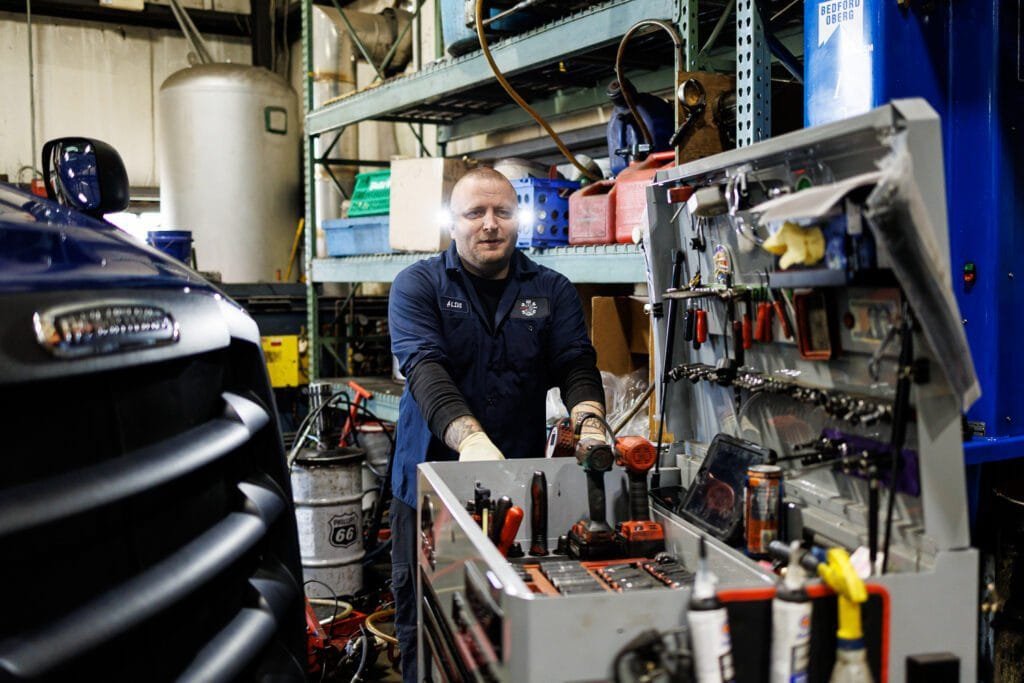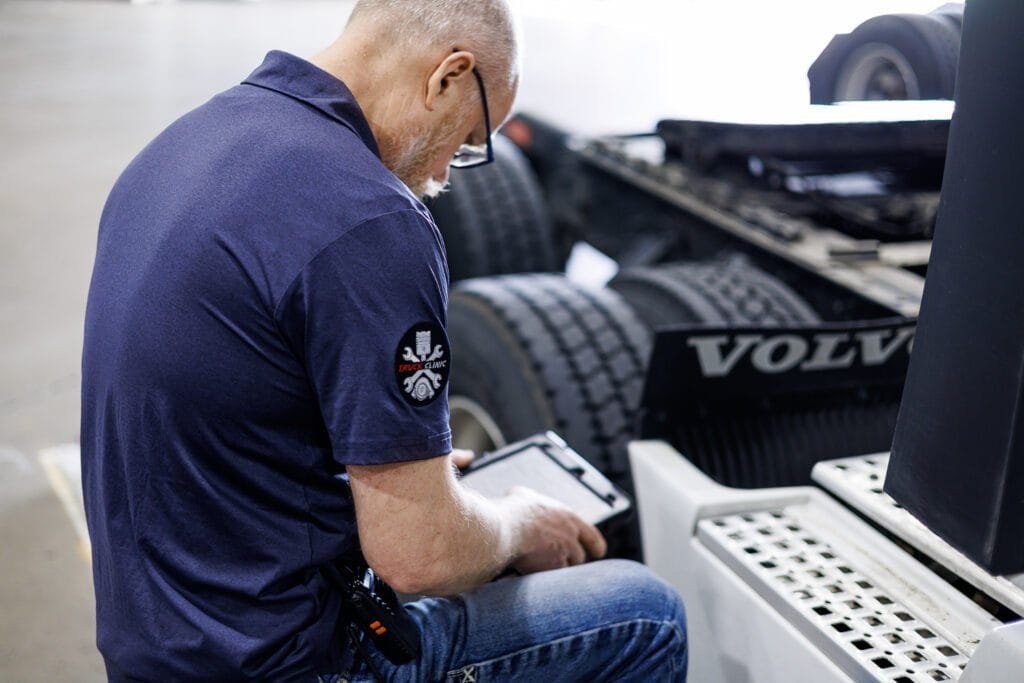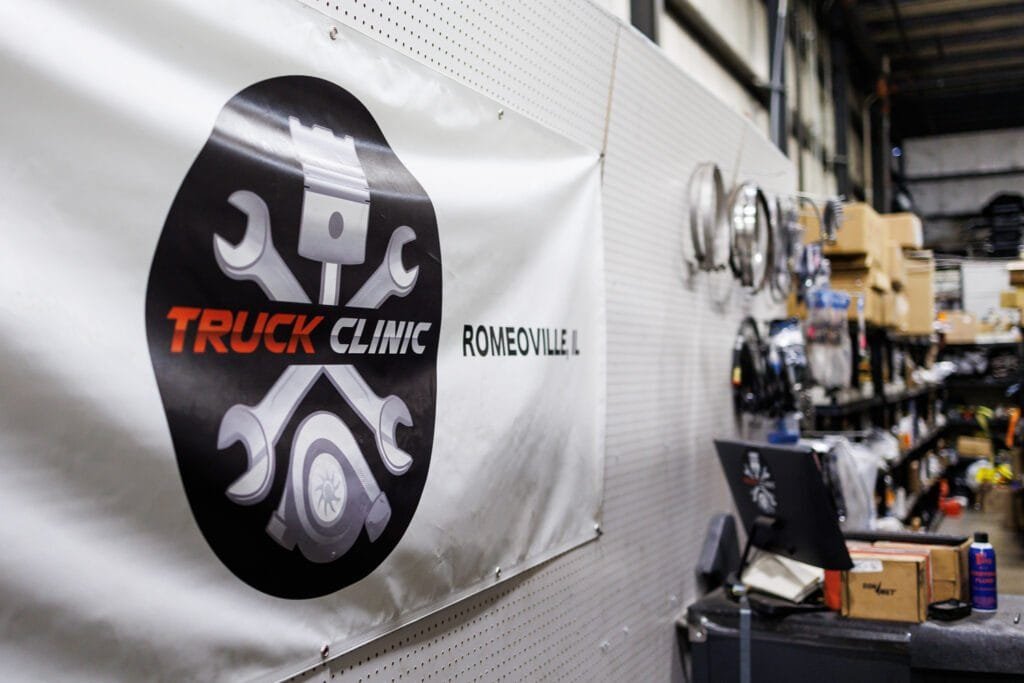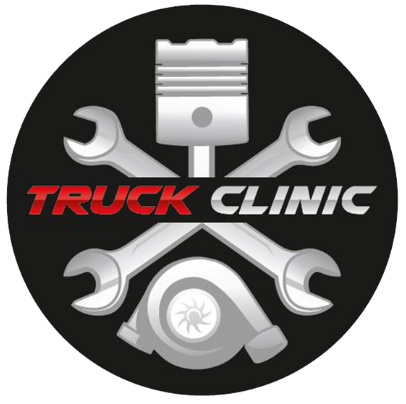CARB Testing in Chicago: How it Protects Your Fleet
Operating trucks in Chicago means juggling traffic, weather, and strict regulations. Staying compliant isn’t just about avoiding fines—it’s about protecting your fleet and your business. A key part of that is CARB testing, which keeps emissions low and trucks running clean.
Ignoring compliance can lead to costly downtime and trucks pulled out of service. But regular testing doesn’t have to be a burden—it can actually save money by catching problems early and keeping vehicles road-ready.
In this post, we’ll explain what CARB compliance means in Chicago, the issues testing helps identify, and how to choose the right provider. Whether you’re searching for carb testing near me or need a semi truck repair shop to support your fleet, you’ll find practical tips to stay ahead.
What CARB Compliance Really Means for Chicago Fleets

If you’ve been hearing more about CARB regulations but aren’t sure how they apply in Chicago, you’re not alone. CARB stands for the California Air Resources Board, the agency that set the nation’s toughest standards on vehicle emissions. While it might sound like something that only affects the West Coast, many states and cities—including Chicago—are adopting similar standards to reduce pollution and keep the air cleaner.
For fleet operators, that means every truck on the road has to meet certain emissions requirements. Failing to comply doesn’t just put the environment at risk—it puts your business on the line. Trucks that don’t pass CARB testing can be flagged during inspections, fined, or even taken out of service until repairs are made. And for a fleet, one sidelined vehicle can quickly disrupt schedules, contracts, and profits.
The good news? Staying compliant is manageable when you make testing part of your maintenance routine. Regular checks give you a clear picture of how your engines are performing and highlight small issues before they turn into costly breakdowns. Partnering with a trusted provider that understands both fleet truck repair and emissions testing ensures your vehicles stay road-ready while protecting your business from avoidable penalties.
Why Regular Testing is Essential

For many fleet managers, compliance can feel like just another box to check—but regular CARB testing is much more than paperwork. Think of it as a routine health checkup for your trucks. By monitoring emissions and performance, you’re not only keeping regulators happy, you’re also extending the lifespan of your vehicles and improving day-to-day efficiency.
One of the biggest benefits of testing is catching problems early. A small emissions issue might seem minor today, but left unresolved it can snowball into serious engine trouble that leaves a truck stranded on the side of the road. By identifying these issues early, you can make repairs before they lead to major downtime. That’s money saved on towing, lost deliveries, and costly breakdowns.
Regular checks also help maximize fuel economy. Engines that pass CARB testing tend to run cleaner and use less fuel, which adds up to significant savings when multiplied across a fleet. On top of that, drivers spend less time dealing with breakdowns and more time keeping deliveries on schedule. And when bigger issues do arise, partnering with a trusted semi truck repair shop ensures your fleet gets back on the road quickly and stays compliant.
For busy fleet operators in Chicago, routine testing is also a safeguard against unexpected fines or compliance checks. With emissions standards getting stricter every year, building fleet truck repair and testing into your regular maintenance plan keeps you ahead of the curve. Instead of reacting to problems, you’re proactively protecting your fleet, your drivers, and your bottom line.
Common Problems CARB Testing Identifies

One of the biggest advantages of routine CARB testing is that it doesn’t just confirm compliance—it also highlights hidden issues that could be hurting performance. For Chicago fleets, this early detection means fewer surprises, less downtime, and a stronger return on investment. Let’s look at the most common problems testing uncovers.
Exhaust and Emissions Issues
Your exhaust system is the first line of defense against harmful pollutants, but it’s also one of the most common failure points. Cracks, leaks, or clogged components can cause trucks to fail inspections and release more emissions than allowed. Regular carb testing helps spot these issues before they escalate, giving you time to schedule repairs and keep vehicles on the road.
Engine and Fuel System Inefficiencies
Engines that burn fuel inefficiently not only waste gas but also push emissions above legal limits. Problems like dirty injectors, clogged filters, or poor combustion can slip under the radar until a truck fails a test. Combining routine fleet truck repair with CARB compliance checks ensures your engines stay efficient, saving money on fuel while protecting your operation from violations.
Malfunctioning Sensors and Onboard Diagnostics
Today’s trucks rely heavily on sensors and computer systems to monitor performance. If a single sensor malfunctions, it can throw off the entire system, leading to incorrect readings or automatic compliance failures. This is where a trusted semi truck repair shop becomes invaluable—they can recalibrate or replace faulty sensors, making sure your vehicles not only pass tests but also run at peak performance.
DIY Checks vs. Professional CARB Testing

It’s natural for fleet managers to wonder if they can handle compliance on their own. After all, routine checks like monitoring oil levels, inspecting filters, and looking for visible smoke are tasks that drivers or maintenance staff can handle in-house. These DIY steps are helpful, but they only scratch the surface when it comes to meeting strict emissions standards.
The reality is that CARB testing requires certified equipment and official documentation to prove compliance. Even if your team is thorough, you won’t have the detailed diagnostics that professional testers provide. Without that proof, your fleet could still be at risk during an inspection.
This is where working with a professional provider really pays off. Certified technicians use advanced tools to measure emissions accurately and provide reports that regulators accept. Many testing centers are also linked to a semi truck repair shop, which means if they find an issue, it can be fixed right away. That saves time and keeps trucks out of extended downtime.
For busy Chicago operators, combining in-house DIY checks with professional testing is the best approach. You get the peace of mind that daily maintenance is being handled, while still ensuring your fleet meets legal requirements through certified inspections. It’s a smart balance that protects your business and keeps your vehicles on the road.
How to Find Reliable CARB Testing in Chicago

When it’s time to schedule emissions checks, searching for carb testing near me will likely bring up plenty of options. But not every provider is the same, and choosing the right one can make a big difference in keeping your fleet compliant without unnecessary headaches. Here are a few things to look for.
Look for Certified Providers
The first step is making sure the testing provider is certified. CARB regulations require accurate, official documentation, and only certified centers can give you that. Don’t just assume—ask for proof of certification before booking an appointment. A certified shop ensures your CARB testing results are valid and recognized by inspectors.
Ask About Additional Services
Many providers don’t just test; they also handle repairs. Choosing a location that offers both testing and fleet truck repair means you can take care of compliance and maintenance in one stop. If an issue is found during testing, a connected semi truck repair shop can handle it on the spot instead of sending your vehicle somewhere else. That kind of efficiency keeps trucks moving and saves valuable time.
Read Reviews and Compare Options
Before making a decision, take a moment to read customer reviews. Look for feedback on professionalism, turnaround times, and service quality. A provider with strong reviews and a reputation for thorough work is more likely to deliver consistent results. In Chicago, competition is high, so comparing a few shops can help you find a reliable partner for long-term compliance.
The Cost of Non-Compliance vs. Regular Maintenance

It’s tempting to see emissions checks as just another expense, but skipping CARB testing often costs far more. In Chicago’s freight market, even one violation can mean heavy fines, lost contracts, and trucks pulled off the road.
The real danger is hidden costs. An inefficient truck burns more fuel and wears down faster, turning a small emissions issue into a major breakdown. Preventative steps—like routine fleet truck repair and timely CARB checks—stop problems before they snowball.
Compared to downtime and penalties, the price of regular maintenance is minor. Partnering with a trusted provider, especially one tied to a semi truck repair shop, ensures compliance and performance are covered. In short, testing isn’t an extra cost—it’s a smart investment in your fleet’s future.
Also Read: Affordable Truck Repair: How to Save Money Without Cutting Corners
Best Practices for Fleet Managers in Chicago

Staying on top of emissions requirements can feel overwhelming, but a few simple strategies make compliance much easier. By turning testing and repairs into part of your routine, you can protect your business and keep your fleet moving without interruptions.
The first step is building a compliance calendar. Schedule CARB testing at consistent intervals and line it up with your regular maintenance cycles. This way, testing becomes part of the process instead of a last-minute scramble.
Next, form a partnership with a reliable semi truck repair shop that understands the demands of Chicago’s freight industry. A trusted shop can handle both compliance and repairs, so you’re not bouncing between multiple providers. If an emissions issue pops up, they can fix it quickly and get your trucks back on the road.
It also helps to train your drivers to recognize early warning signs. Excessive smoke, poor fuel economy, or dashboard alerts can all point to emissions problems. When drivers report these issues promptly, your team can schedule fleet truck repair before small problems turn into compliance failures.
Finally, keep documentation organized and accessible. Inspectors may ask for proof of testing at any time, and having records on hand prevents delays. For managers searching “carb testing near me,” finding a provider that offers digital records can simplify this step even more.
By following these best practices, you’ll create a smooth system that keeps your fleet compliant, efficient, and ready for whatever Chicago roads throw your way.
Protect Your Fleet with Smart Compliance
For fleet operators in Chicago, compliance isn’t just about meeting regulations—it’s about protecting your business, your drivers, and your bottom line. We’ve covered why CARB testing is so important, the common issues it can uncover, and how regular checks combined with preventative maintenance can save you from costly downtime. By working with a trusted partner that offers both emissions testing and fleet truck repair, you can keep your vehicles efficient, road-ready, and free from unexpected fines.
The real key takeaway is this: compliance is most effective when it’s built into your routine. From scheduling inspections to training drivers and keeping clear records, every step strengthens your fleet’s reliability and performance. And with the right semi truck repair shop on your side, staying compliant doesn’t have to be a hassle—it can be a smart business strategy.
If you’ve been searching for dependable carb testing near me, now’s the time to make it part of your regular maintenance plan. Take the proactive step to protect your fleet today, and you’ll reap the benefits of fewer breakdowns, lower costs, and a stronger operation tomorrow.

